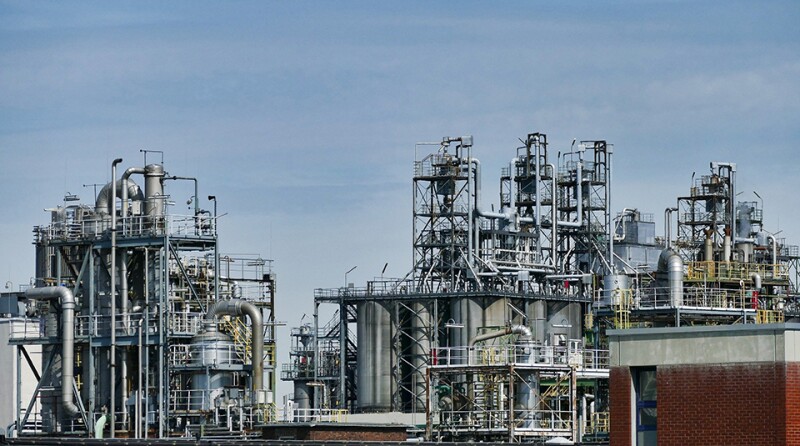
Much of the discussion around reducing Europe’s dependence on oil and gas from Russia has focused on how to accelerate renewable energy programmes – a strategy that would become much more urgent if sanctions on Russia were extended to that country’s oil and gas exports.
With the West’s economic war plan showing mixed results so far – even the rouble recovered a good part of the losses it made following the Ukraine invasion – banning Russian oil and gas would ratchet up the pressure on Moscow considerably.

But such a move would have serious implications for energy prices at a time when inflation is rising at a worrying pace and the post-Covid recovery isn’t yet strong enough to maintain healthy economic growth.
Adam Button, chief currency analyst at ForexLive, says that markets are currently assigning only a small probability of sanctions on Russian oil.
“There is a fresh push from some European countries – particularly Poland and the Baltics – to sanction Russian oil, but Germany is leading the resistance and that is unlikely to change unless Russia does something to further significantly damage public opinion in Europe,” he says. “The odds of natural gas sanctions are near zero in any scenario short of nuclear war.”
Button was speaking before the weekend of April 2-3, when the trigger for further sanctions may well have moved closer amid allegations of war crimes committed by Russian troops in the Ukrainian town of Bucha, following media reports from the location as it became accessible after Russian troops withdrew.
New sanctions
There has been widespread outcry this week among Western nations at images of dead civilians in the streets of Bucha, with US president Joe Biden labelling Russian president Vladimir Putin a war criminal. The US and the EU are reportedly planning new sanctions in response, and even Germany’s defence minister Christine Lambrecht called on Europe to consider the banning of Russian gas.
[A ban on Russian gas imports] would be extremely damaging, which is why Europe is so reluctant to do it

Against that backdrop, there is also acknowledgement that increasing output from renewable sources to make up for shortfalls of imported gas will take time and demand significant investment.
The upshot is a growing sense that governments may have to maintain or even increase their use of fossil fuels sourced domestically or from other parts of the world (at least in the short term) to limit their exposure to Russian supplies of oil and gas and give themselves economic breathing space to fund the considerable cost of a zero-carbon future.
Button says this is a tailwind for countries like Canada, which has struggled to develop a social licence for extracting petrocarbons.
“Technologies such as carbon capture could extend that licence further and lead to a boom in the places where it is being developed,” he says. “There are large investments being made in this area in the US, Canada, Norway and northern Europe, and successful implementation of novel technologies would be a game changer.”
There is a limited currency impact to Europe in using more fossil fuels, but should it be forced into a ban on Russian imports both the euro and the rouble would suffer, according to Craig Erlam, senior market analyst at Oanda.
“It would be extremely damaging, which is why Europe is so reluctant to do it,” he adds. “That said, Russia has potentially led it down that path by demanding payment for natural gas in roubles, which is a risky move if neither side blinks.”
One battle at a time
A return to coal-fired generation would slightly dampen demand for oil and gas to generate electricity in cities but would do little to help sectors that cannot replace their energy sources.
We could expect to see further and sustainable gains in [the] currencies that benefit already from firmer oil prices

In such a scenario, policymakers would need to expand stimulus to support consumer demand and the European Central Bank would have to be more inflation-tolerant and hold back on raising interest rates.
“Both the monetary and fiscal responses are fundamentally negative for the euro,” says Alex Kuptsikevich, senior financial analyst at FxPro. “However, a currency market reaction would require governments and central banks of other countries to act differently. So far this can only be expected from the Fed, where the rhetoric has tightened over the last couple of weeks.”
If European leaders moved more quickly to reduce their dependence on Russian oil and gas it would mean higher inflation in the short run, which would then boost ECB hawks and have a positive impact on the euro. But some argue that it is becoming clear the ECB must choose one battle at a time – and inflation will be that battle.
That is the view of Ipek Ozkardeskaya, senior analyst at Swissquote, who expects oil currencies to continue trending higher. “We already see USD/CAD retreat to 1.25 and USD/NOK below the 8.80 mark,” she says. “We could expect to see further and sustainable gains in these currencies that benefit already from firmer oil prices.”

Naeem Aslam, chief market analyst at AvaTrade, agrees that in the short term, currencies closely related to fossil fuel energy are likely to see their values soaring.
The current situation is also favourable for countries that are dependent on exports of metals used in the production of batteries. Since the start of the year, the Brazilian real, South African rand and Colombian peso have shown the most significant gains against the dollar.
“It can be anticipated that their rally has only just begun as they benefit from Russia’s long-term loss of its share of metals and energy exports to global markets,” adds Kuptsikevich.
